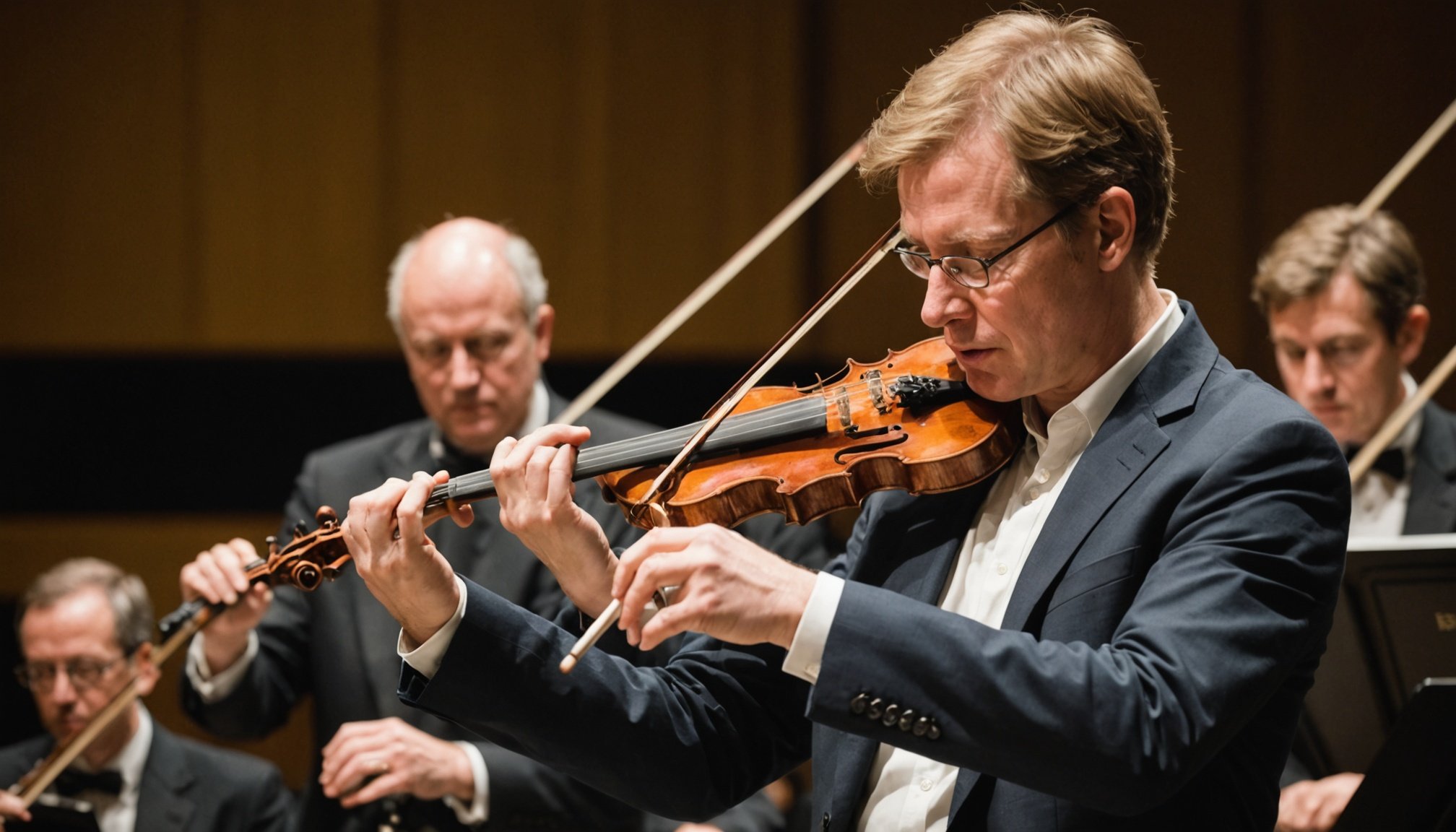Overview of Classical Music and Fetal Development
Classical music, characterized by its rich harmonies, complex structures, and emotional depth, has long been appreciated not only for its aesthetic qualities but also its potential prenatal effects. Historically, music has been introduced into prenatal environments with the belief it could influence fetal development positively.
Fetal development is a complex process beginning with the formation of the zygote and progressing through various stages, each sensitive to external stimuli. By the second trimester, developing ears begin to pick up sounds, introducing an auditory experience that might play a role in shaping neurological growth. Researchers have been interested in how the rhythms and melodies of classical music might serve this purpose.
Also to discover : Essential tips from uk health experts for expecting mothers overcoming extreme fatigue
The interaction between classical music and fetal development remains an area of interest, as studies suggest that harmonious music could enhance neurological pathways and emotional stability. The prenatal effects of such exposure are thought to set a foundation for postnatal growth, fostering early cognitive skills. As more parents turn to these melodies, understanding these connections helps in nurturing an optimal prenatal environment, enriching both the emotional and cognitive landscapes of the developing fetus.
Recent Research Insights from the UK
Recent UK research has contributed significantly to our understanding of the impact of music on fetal development. These studies explore how auditory stimuli, such as music, influence fetal neurological development and physiological responses.
Additional reading : Crucial insights for identifying gestational hypertension in the uk: key criteria you must understand
Key Studies on Music and Prenatal Development
UK research includes various studies examining the effects of music exposure on the fetus. Notably, researchers have noticed that classical music, in particular, may stimulate fetal neurological growth more effectively than other genres, suggesting it might play a pivotal role in prenatal care.
Methodologies Used in Recent Research
Research methodologies have ranged from observational studies to controlled experiments, exploring various stimuli, including classical music. These studies often use fetal heart rate monitoring to assess responses, providing insight into how music might influence both the emotional and cognitive states of the developing fetus.
Major Findings of UK-Based Studies
Key findings indicate that music exposure can impact fetal heart rate, suggesting a relationship between auditory stimuli and physiological changes. Furthermore, maternal emotions, enhanced by listening to music, appear to positively influence fetal health, underscoring the potential holistic benefits of music during pregnancy. This burgeoning field suggests promising avenues for further exploration in prenatal wellness.
Mechanisms of Music’s Influence on Fetal Health
The intricate relationship between music influence and fetal health is unfolding through fascinating insights on auditory development. The fetal brain, even at early gestational stages, starts tuning into the world of sounds. This auditory development plays a fundamental role in brain maturation. Specifically, classical music, with its steady rhythms and soothing harmonies, potentially enhances the neural wiring responsible for emotional and cognitive responses. Its complex structures offer a stimulating auditory experience, crucial for developing recognition abilities.
The Role of Sound in Fetal Brain Development
Sound, primarily classical music, reaches the fetus by vibrating through maternal tissues and amniotic fluid. This exposure may bolster neurological growth. Crucially, studies suggest that music can modulate fetal brain activity, favouring pathways linked to memory and learning abilities.
Evidence of Auditory Recognition in the Womb
Research corroborates the notion of auditory recognition, indicating fetuses can discern music patterns. This recognition could form the basis for postnatal skills, shaping early learning environments. By embedding soothing melodies in prenatal settings, expectant parents might foster an enriching auditory landscape, beneficial for emotional and cognitive foundations. Insights into these mechanisms underscore the potential of leveraging classical music in prenatal care.
Practical Recommendations for Expectant Parents
Incorporating prenatal music thoughtfully can enrich the experience of both expectant parents and their unborn child. Creating a positive fetal environment through the harmonious notes of classical music can be both a soothing and beneficial practice.
Types of Classical Music to Consider
When selecting music, consider compositions that feature rich harmonies and gentle melodies. Composers like Mozart and Bach are often recommended for their ability to create calming and structured atmospheres. Such choices can support a peaceful prenatal environment that may benefit both emotional and cognitive development.
Guidelines for Music Duration and Timing
It’s crucial to integrate music into the prenatal routine without overwhelming the sensory experiences of both mother and fetus. Aim for shorter sessions, such as 20-30 minutes, to avoid overstimulation. Evening hours can be quieter, offering an ideal time for more immersive classical music sessions. Keep volumes moderate to ensure safe auditory exposure.
Creating a Positive Prenatal Environment
Beyond music, consider the overall prenatal environment. Encourage calmness and relaxation, perhaps by integrating light ambiences like dim lighting or aromatherapy. This comprehensive approach enhances both the prenatal experience and potential long-term benefits of music exposure, crafting a nurturing space for fetal development.
Expert Opinions and Testimonials
Insights from obstetricians and paediatricians on music therapy reveal that carefully curated prenatal music can aid in emotional and cognitive development. Healthcare professionals underscore the benefits of structured auditory experiences, such as those offered by classical music, in prenatal settings. These experts note that sound waves might influence neurological pathways, potentially enhancing cognitive responses and memory formation in the fetus.
Expectant mothers have shared positive experiences, emphasising how music, especially from composers like Mozart or Vivaldi, heightened their emotional well-being, which in turn may have calmed and nurtured their unborn child. Their testimonials often highlight a decrease in stress and a positive bonding experience when classical music was integrated into daily routines.
Music therapists recommend best practices tailored to individual needs, using classical music as a therapeutic tool. Their advice generally includes maintaining moderate volumes and selecting harmonically rich compositions for optimal prenatal effects. By focusing on experiences from both professionals and mothers, the powerful combination of scientific insight and personal accounts provides a holistic understanding of how music can shape prenatal development, drawing attention to its nurturing capabilities.
Future Directions in Research
In the realm of prenatal music studies, the future promises intriguing avenues to deepen our understanding of music’s impact on fetal development. Current research primarily centres on classical music, but exploring a diverse range of musical genres could provide insights into varied fetal outcomes. Understanding how different rhythms and melodies influence fetal development might lead to more nuanced prenatal care strategies.
Emerging Trends in Music Therapy
Music therapy’s role is evolving with technological advancements. Innovations in monitoring technologies are enabling researchers to track fetal responses to music with precision. This aids in discerning real-time changes in fetal heart rate and brain activity, refining our comprehension of music’s physiological impacts.
Longitudinal Studies on Music Impact
Future research could benefit from longitudinal studies that monitor the long-term effects of prenatal music exposure. These studies might clarify its influence on postnatal cognitive and emotional development, providing a holistic view of prenatal music’s benefits.
Potential Areas for Further Investigation
Collaborative projects between music and health sectors are gaining attention. Such interdisciplinary ventures are essential for innovating comprehensive prenatal wellness solutions. Additionally, the potential use of artificial intelligence in predicting and customising prenatal music therapies is an exciting frontier in prenatal studies. Through these efforts, the evolving understanding of prenatal music exposure continues to grow.











